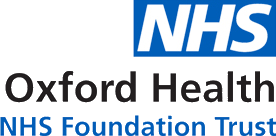Young Person’s Guide to ME/CFS
A useful leaflet by the Royal College of Psychiatrists. Download it here Young Persons Guide to ME CFS
This is a national organisation that provides information, support and advice to people to help improve their health and well-being, Action for ME, works with professionals to enhance the care and support that people with ME receive and funds pilot research projects to advance knowledge of the illness.
It has a special service for young people. It’s Children’s Services community is a great way for you to talk to other people your age who have ME. Some are more severely affected than others, but even if their experiences are different to yours, every member of our community understands what it’s like to live with ME.
Reading
“Overcoming Chronic Fatigue in Young People” by Katharine Rimes and Trudie Chalder
An effective evidence-based, step-by-step guide to managing and overcoming chronic fatigue. It’s aimed at young people, with downloadable material to support recovery. It also includes a guide for parents and a helpful resources section. Available to order from bookshops and from online retailers in download format. Publisher: Taylor & Francis Ltd ISBN: 9781138802896
